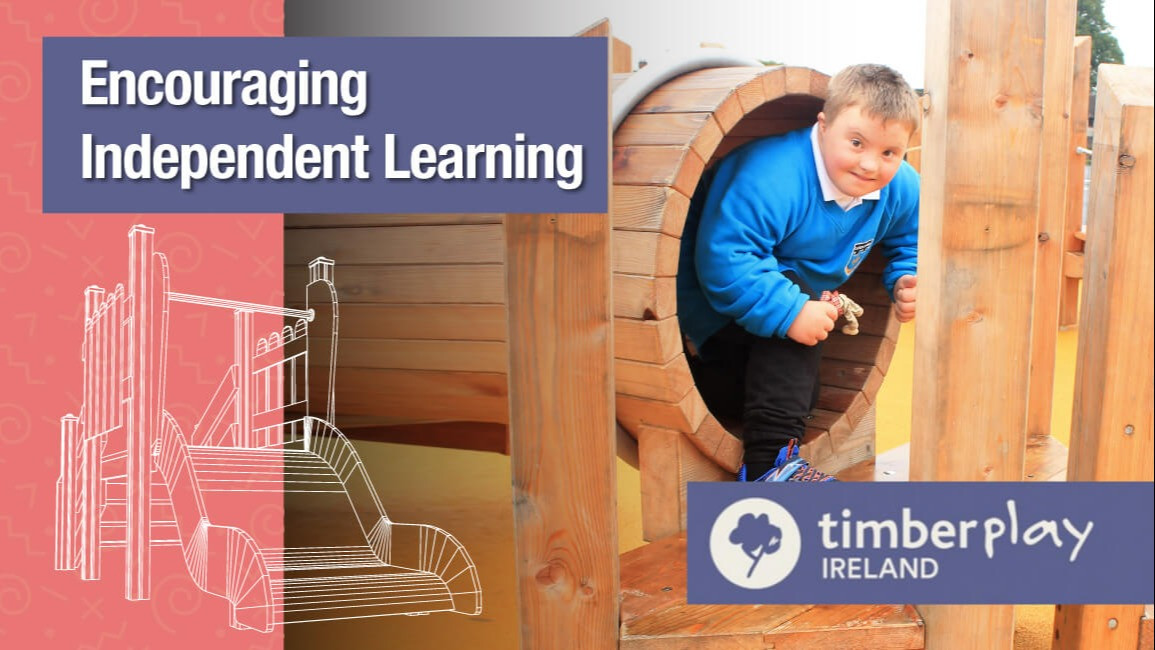Today In Play
Playtime should be fun and inclusive for all children. Safe and challenging play spaces can provide an excellent platform for children and teenagers to build their interpersonal and communication skills.
Not all teaching or learning need occur in the classroom. A suitably designed playground with plentiful features which account for age and difficulty level can accelerate a child’s development and encourage independent learning.
What is Independent Learning?
Independent learning is a method or learning process where children take ownership and control of their own learning without the need for adult support.
The learning process is fluid and driven by immediate feedback where the learner responds in kind to a directed action and its consequences, e.g. two children test a seesaw feature and quickly realise that if one jumps off too quickly, it can lead to a bumpy drop for the still seated child.
Why are Independent Learning Skills Important?
Entrusting children to learn for themselves can have a number of benefits for their learning and self-esteem.
-
Develop cognitive skills. Problem solving through mastering complex obstacles in the playground, understanding how features work, improving balance and coordination, decision making - many traits can be developed where there is sufficient challenge presented in the featured playground.
-
Time management. If a child is given a 15-30 minute window to play, he/she will quickly learn to prioritise which activities they can derive the maximum fun from in a short space of time. Similarly, if certain features are more popular than others, children will learn how to plan their activities and measure the risk/reward ratio accordingly.
-
Collaboration. Some features require the participation of two or more children, while others will require patience and discipline as children form an orderly queue to await their turn.
-
Confidence. Empowering children to learn and conquer new obstacles and integrate themselves into a new playground environment can improve their social skills. On the surface, playtime should always be fun but underneath it all, a child’s mental framework is slowly developing, subtly enabling them to take ownership of their actions and consequences.
Independent Learning Skills in the Playground
The skills that are developed in a playground can vary depending on a number of factors, i.e. size of playground, number of installed features, child age range and ability. Different features will encourage different behaviours.
Some features require more than one child (seesaw) while others can be enjoyed solo or as a group (swingset, climbing frame).
Children, much like adults, can be introverted, extroverted or somewhere in between. Children can become bored if left alone, or feel overwhelmed if faced with obstacles that require the involvement of others.
Ensuring there is a blend of both types of features can encourage children to develop their own independent learning at their own pace. Giving adequate space and attention to help them explore their relationship with others and develop an understanding of the societal structure in a playground will help their own growth.
On the opposite scale of independent learning is ‘helicopter parenting’. This describes an overprotective style of parenting which oversees every aspect of a child’s life, negating their ability to face and overcome challenges.
-
Striking the right balance between encouraging your child’s learning and protecting them from uncomfortable situations is every parent's challenge.
At Timberplay Ireland, our job is to design and install the best play spaces that can tease out and encourage young learners’ confidence, learn new skills and have fun in the process.
To learn more about how we can help design your perfect play space, contact us today.
